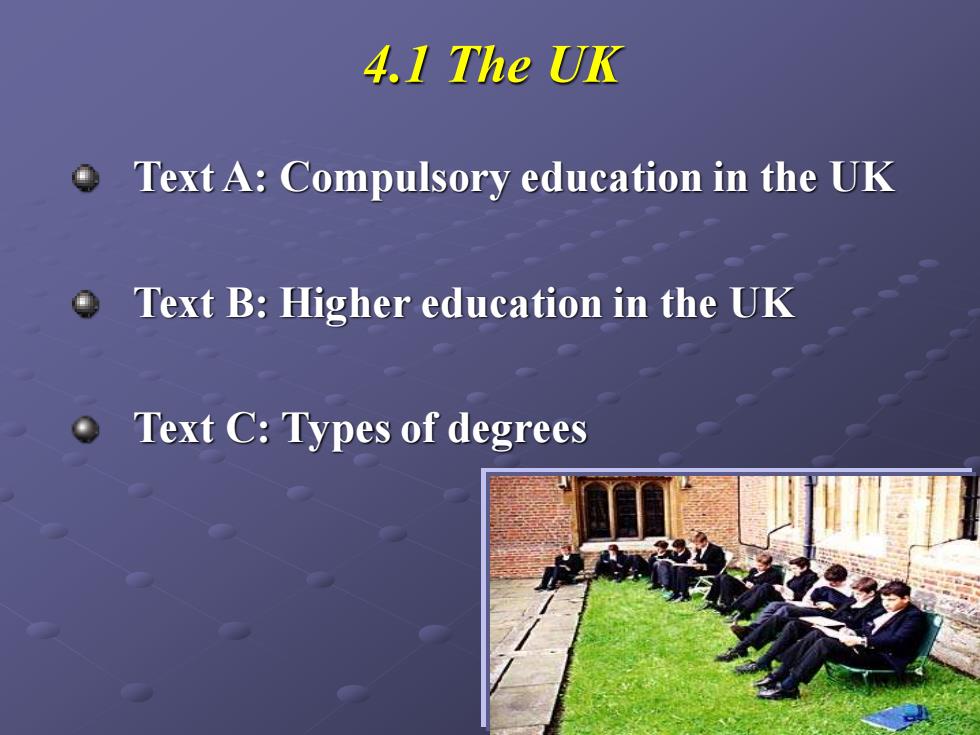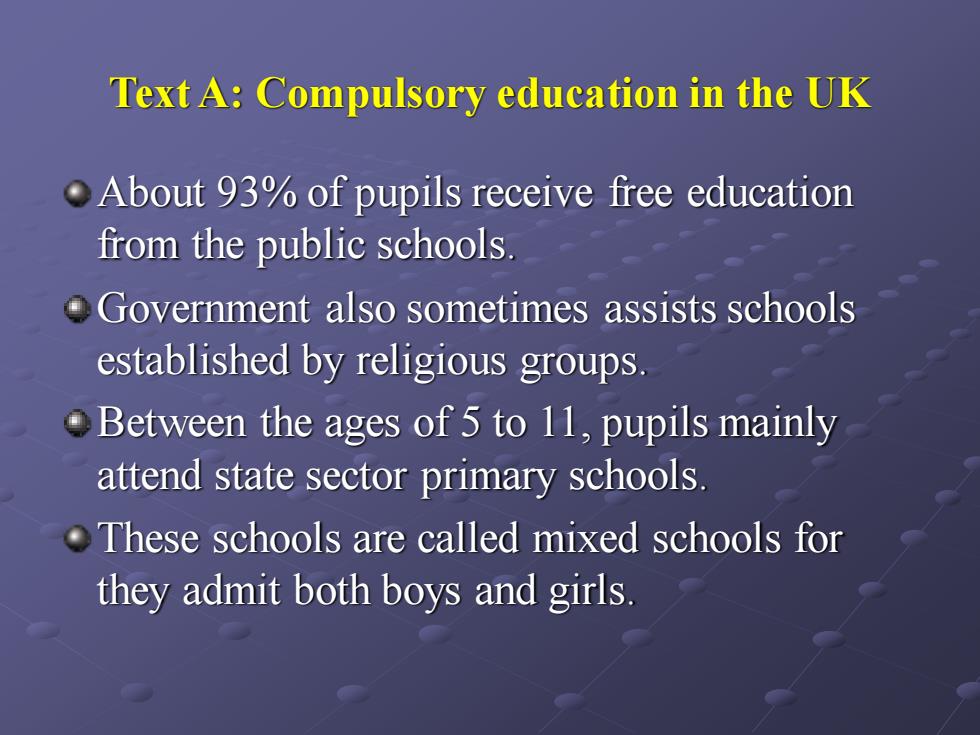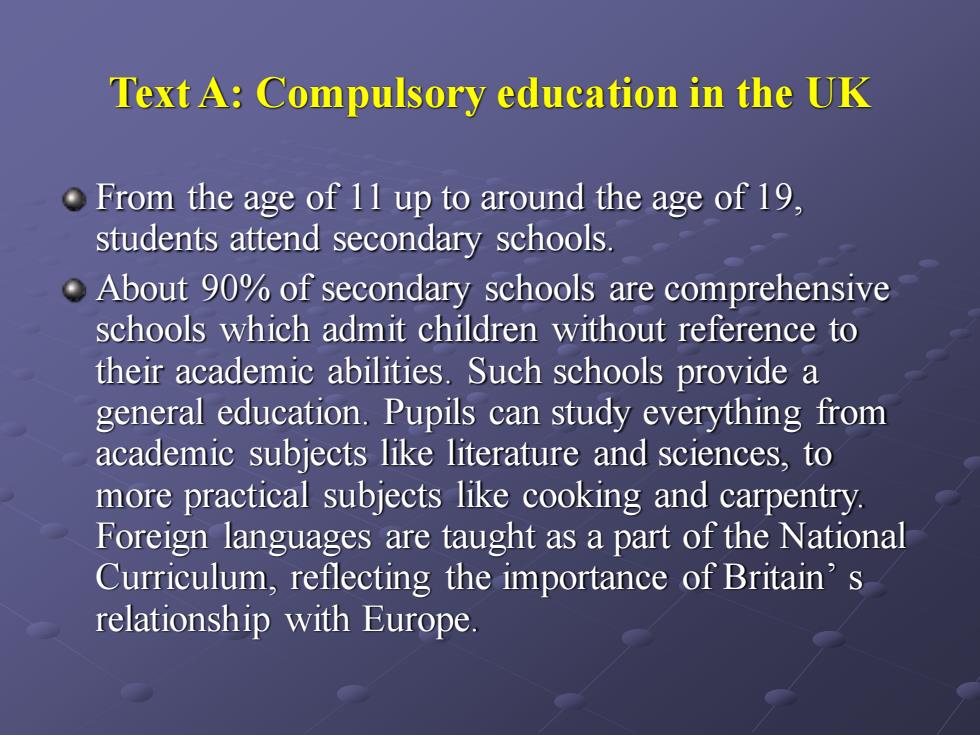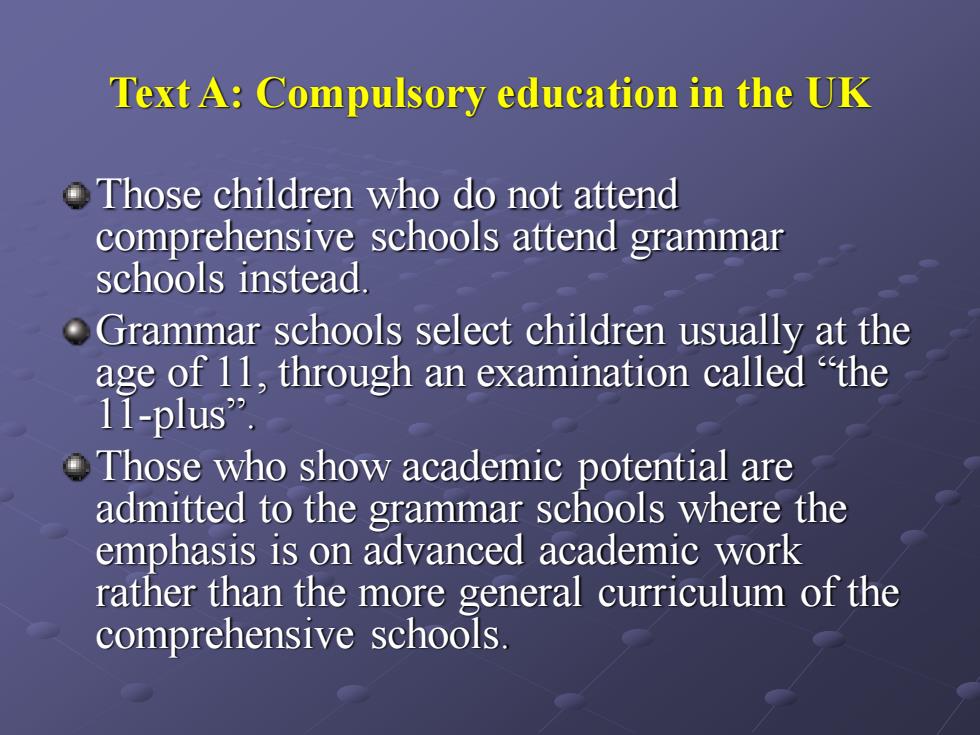
4.1 The UK o Text A:Compulsory education in the UK Text B:Higher education in the UK Text C:Types of degrees
4.1 The UK Text A: Compulsory education in the UK Text B: Higher education in the UK Text C: Types of degrees

Text A:Compulsory education in the UK Education System in the UK is compulsory. Children are legally obliged to attend school from the ages of 5 to 16. Parents can choose between sending their children to state schools or to private schools. State schools are funded by local and central government. Cultural Notes: state schools国立学校,与之相对的是private/ independent schools又称public schools公学。私立 学校除部分政府财政资助外,主要通过学生学费 蒙参等费。因此,华波较合通帝为篇资家的子弟
Text A: Compulsory education in the UK Education System in the UK is compulsory. Children are legally obliged to attend school from the ages of 5 to 16. Parents can choose between sending their children to state schools or to private schools. State schools are funded by local and central government. Cultural Notes: state schools 国立学校, 与之相对的是private/ independent schools 又称 public schools公学。私立 学校 除部分政府财政资助外,主要通过学生学费 筹集经费。因此,学费较高通常为富贵家庭的子弟 就学

Text A:Compulsory education in the UK About 93%of pupils receive free education from the public schools. Government also sometimes assists schools established by religious groups. Between the ages of 5 to 11,pupils mainly attend state sector primary schools. These schools are called mixed schools for they admit both boys and girls
Text A: Compulsory education in the UK About 93% of pupils receive free education from the public schools. Government also sometimes assists schools established by religious groups. Between the ages of 5 to 11, pupils mainly attend state sector primary schools. These schools are called mixed schools for they admit both boys and girls

Text A:Compulsory education in the UK From the age of 11 up to around the age of 19. students attend secondary schools. About 90%of secondary schools are comprehensive schools which admit children without reference to their academic abilities.Such schools provide a general education.Pupils can study everything from academic subjects like literature and sciences,to more practical subjects like cooking and carpentry. Foreign languages are taught as a part of the National Curriculum,reflecting the importance of Britain's relationship with Europe
Text A: Compulsory education in the UK From the age of 11 up to around the age of 19, students attend secondary schools. About 90% of secondary schools are comprehensive schools which admit children without reference to their academic abilities. Such schools provide a general education. Pupils can study everything from academic subjects like literature and sciences, to more practical subjects like cooking and carpentry. Foreign languages are taught as a part of the National Curriculum, reflecting the importance of Britain’ s relationship with Europe

Text A:Compulsory education in the UK Those children who do not attend comprehensive schools attend grammar schools instead. Grammar schools select children usually at the age of 11,through an examination called "the 11-pus”. Those who show academic potential are admitted to the grammar schools where the emphasis is on advanced academic work rather than the more general curriculum of the comprehensive schools
Text A: Compulsory education in the UK Those children who do not attend comprehensive schools attend grammar schools instead. Grammar schools select children usually at the age of 11, through an examination called “the 11-plus”. Those who show academic potential are admitted to the grammar schools where the emphasis is on advanced academic work rather than the more general curriculum of the comprehensive schools